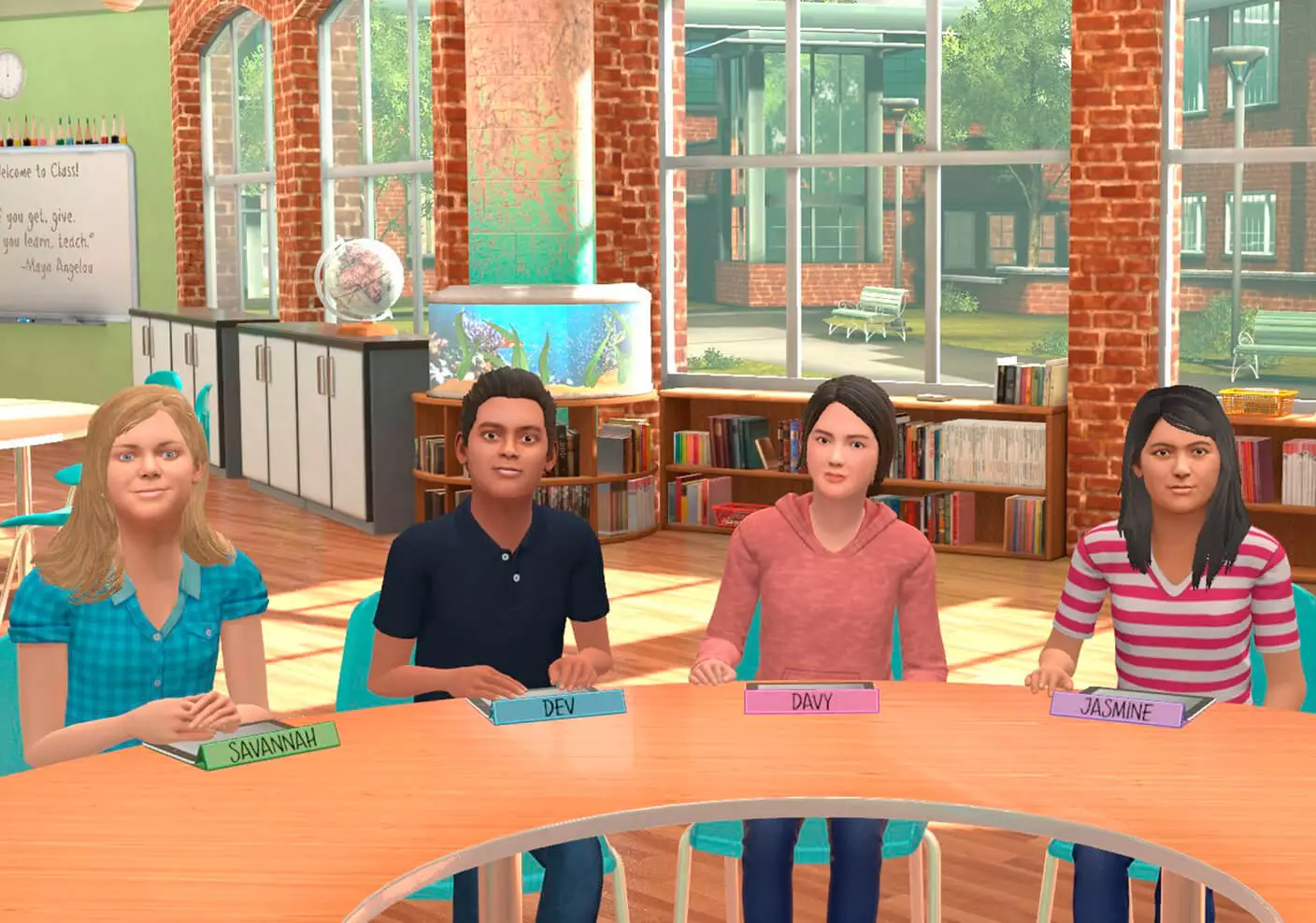This post was written by Tushar Thomas, an Associate Learning Partner at Mursion. If you would like to drop Tushar a note, reach out at [email protected].
Everyone’s ears perked up when Ava — decidedly the queen bee of her middle school class — lightheartedly complained about a fellow student named Savannah for the teacher and her peers to hear: “I like that you gave us a time limit because sometimes when I partner-share with Savannah, no offense Savannah, she can talk for a while, so thank you.”
This moment unfolded during a recent online Education Roundtable session, during which a learner practiced teaching with student avatars puppeteered by a Mursion Simulation Specialist. Though this interaction took place in a virtual setting, the human-in-the-loop technology and the artificial intelligence algorithms lent the exchange an organic spontaneity.
This moment captures perfectly the ambiguities that arise in the classroom, and to which teachers must react with sensitivity. If the teacher-in-training had reacted with overseverity, they would have risked alienating Ava over what may have been intended as a lighthearted joke. On the other hand, if they had simply laughed along with Ava, they may have risked neglecting a real case of classroom bullying, which could lead to future problems between the students. In this simulation, the teacher-in-training reacted with an emotional agility reflected by an abundance of practice: They laughed along with Ava but identified with Savannah, saying, “I am Savannah in the real world, and it’s important to have time limits.”
By showcasing a specific problem, this moment reveals that language is not merely a means of communication but rather a tool. Like any physical tool, like a hammer or a kitchen knife, language has use-cases that vary across contexts and risks that correspond to those use-cases. And like any tool-based skill, language-use requires training and practice.
Finding a State of Flow
In the discussion surrounding this week’s Roundtable, Professor Christopher Dede from Harvard University mentioned the importance of the immersive experience of flow in training. In a state of flow, the mind forgets the anxiety-inducing risks involved in a given task and engages directly with the small challenges directly in front of it. A swimmer, for example, forgets their worries over their timing, and their concentration fixes itself on the immediate task of perfectly executing the next swim stroke.
According to Mihaly Csikszentmihalyi, the psychologist who popularized the concept, flow is “the state in which people are so involved in an activity that nothing else seems to matter; the experience itself is so enjoyable that people will do it even at great cost, for the sheer sake of doing it.” When a learner is immersed in a state of flow, the necessary processes, whether physical or linguistic, effortlessly embed themselves in the mind of the learner.
As these descriptions suggest, the most vital aspects of flow involve an intense concentration and a relaxation of anxiety. This unlikely combination of concentration and relaxation, which often conflict with each other, is also evoked by games. Indeed, some psychological research indicates that the experience of flow is what makes video games so enthralling. Given that games so successfully induce states of relaxed concentration, some researchers have argued that educators should attempt to adapt video games for educational purposes.
The technology offered by Mursion is one such attempt. By scripting scenarios that call for sensitive language-use and by immersing learners in realistic simulations, Mursion’s virtual reality training program forces learners to encounter difficulties in language. Over time and with practice, these forced encounters build communication skills until the sense of difficulty gives way to a sense of readiness and of enjoyment. With coaching, support, and encouragement from the Mursion team, learners build their confidence and habituate themselves to their environments until the challenge at hand no longer seems challenging.
Subscribe for the latest Mursion articles and updates.
By clicking the sign up button above, you consent to allow Mursion to store and process the personal information submitted above to provide you the content requested. View our Terms and Conditions.




